This should wrap up our series of advice for the college freshman. I hope you enjoyed reading it, because I enjoyed sharing it.
"Don't hesitate to go out for any teams or papers or musical clubs which you think you'd like to make." This is totally sound advice. What's the absolute worst that can happen? Besides, modern colleges make it a lot easier to get involved in clubs. Most of them, at least in my experience, don't require any sort of audition.
"Don't be surprised or disappointed to keep up with everything you thought you would, when first coming to college." This is so true. In high school, you can fill your plate with every extracurricular activity under the sun, and still make straight A's. That is much harder, if not impossible, in college. You might also realize, much like I did with Scholars' Bowl, that it was fun in high school thanks to the people you were with.
"Don't think that offering suggestions to an athletic coach is the way to make a team." I don't think Nick Saban needs your help.
"Don't, for heaven's sake, ask people how one ought to about getting into social clubs." If you don't come into college with a healthy understanding of how the Greek system works, it's probably not for you.
"Don't hesitate to accept all chances for making friends, especially among your class." I wish this went without saying, but it doesn't. If you're Greek, you can be friends with a GDI, and vice versa. Same goes for any other type of person on campus. There are cool people that move in every social circle.
"Don't rely too much on prejudice in deciding what certain fellows may or may not be good for."
"Don't invite everybody you meet to your room." You don't have to be best friends with everybody. It's impossible. Besides, not everybody you meet will be good for you. Stay away from poisonous relationships.
"Don't shake hands like a clam." I can't make that any clearer.
"Don't be one of those who continually pick up anything on the street that wears a bonnet and high heels." I would be wary of picking anybody up who was wearing a bonnet. She's probably a ghost. But seriously, don't sleep with anything and everything that moves. You can pick up all kinds of stuff that way.
"Don't, however, neglect any opportunity to meet ladies of your own station." You never know when you'll meet Mr. or Miss Right. It might be in college, but don't fret if it isn't.
"Don't hesitate to hear other people's opinions. The world did not begin, nor will it end, with you."
"Don't strut or look patronizing, if you happen to have success; it makes people feel sorry for you." It also makes people creatively plot your murder.
"Don't forget the little things; fellows notice them." People will judge you without ever speaking to you. It's not fair, but it's the way life works.
"Don't imagine that your entire success in college will be finally measured by the number of clubs you make during your first year." You'll drop 75% of them by your second year.
"Don't expect to lay up a bank account by what you save from living inside your allowance." I had to learn this the hard way. Not going broke is NOT the same thing as saving.
"Don't forget to write home once every so often. Mama and Papa are always glad to see the College town postmark; and, like as not, Papa is paying your way through college. Think how you'd feel, if he forgot, sometimes, to send that check!"
"Don't treat Father or Uncle John shabbily if one of them happens to come into town unexpectedly."
"Don't swagger when you go home for your first Thanksgiving or Christmas vacation. It doesn't make your friends envious of you. It's apt to make them sore."
"Don't think because you can charge things at almost any store in the College Town, it is your duty to have your name on the books of every firm."
"Don't think it is your father's duty to present you with an automobile."
"Don't pawn your watch or sleeve-links during your first year. This privilege is limited to upperclassmen who do Society." What? Why would you pawn your watch just for fun? Don't do that.
"Don't buy cigars in wholesale quantities from mysterious-looking foreigners, who say they have just done a neat little job of smuggling them from Havana, and are willing to let you in on a good thing." That's oddly specific, but the point is fair. That's how a person wakes up in a bathtub filled with ice, missing a kidney. Stay away from drug dealers.
"Don't give money to able-bodied beggars. Some may even speak good French or German." Hmmm. If I met a beggar who could speak to me in perfect French, I'd totally give them money. That's impressive. It's also scary. I have degrees in history and English. That will probably be me one day.
"Don't kill your conscience in regard to matters which you have been brought up to see in definite lights." Some of the people around you will lose their damn minds and every moral bone in their body when they get to college. These people often end up in jail once or twice. This is seriously good advice. Take it.
"Don't get into the little game too often." Don't gamble your money away, folks.
"Don't keep spending money for a lot of things that you would hardly care to itemize in the account you send to Father." Remember that these sketchy charges also show up on your credit card statement. Pay in cash.
"Don't be ashamed of chances to earn money in college, if you need it." In the immortal words of Missy Elliott, "Girl, girl, go get that cash, if it's 9-to-5 or shakin' your ass. Ain't no shame, ladies, do your thing, just make sure you ahead of the game."
"Don't be a Sport or a Snob. Either is fatal." Nobody likes a snob.
"Don't imitate the manner of someone else."
"Don't pretend you have a fancy income, if you haven't." There's nothing wrong with being not-rich.
"Don't fail to keep one eye on that bank account." Seriously, it dwindles fast.
"Don't neglect the health habit." Beat the Freshman 15.
"Don't repeat all the jokes which come into your head."
"Don't, if you come from a large, well-to-do Preparatory School, talk too much about it, or think that the College must be run on the same plan as your school." Along those lines, even if you were Homecoming King and the quarterback and class president and valedictorian, you are still an anonymous nobody. Get used to it.
"Don't aspire to be taken for an upperclassman by cultivating a walk, a swagger, or an air." Upperclassmen can spot freshmen from a mile away, especially if they do this.
"Don't be rowdyish or get the reputation of being a drunken fellow." You won't be popular for long.
"Don't think it is entirely the other man's fault if he fails to speak to you." You may not be worth talking to.
"Don't be a fool."
"Don't imagine for a moment that coming to college enables you to act in a superior way to others who have not had the same privilege." There are brilliant and wealthy people who have never been to college at all. There are woefully stupid college students, and there are oodles of unemployed and debt-ridden college graduates.
"Don't imagine that the College Catalogue, or even this book can tell you all the things you need to know concerning how to make a man of yourself." The best school in the world is still the school of hard knocks.
Always,
Callie R.
The History Junkie
Get your daily history fix here! A place to post pieces from my collection of vintage stuff, old ads, text from old magazines and books, interesting facts, and anything else that strikes my historical fancy.
08 August 2014
07 August 2014
More Advice for the College Freshman
In case you missed yesterday's post, this advice is taken from The College Freshman's Don't Book, written by George Fullerton Evans in 1910. You can read the entire thing on Google books, and you can find the link in yesterday's post.
"Don't forget to dress neatly and up to your means." I'm not saying you have to wear a tie or kitten heels to class. I sometimes dressed like a hobo, too. When you haven't slept in 36 hours and you're still strung out on caffeine, you're doing well if you remember to brush your teeth. What always puzzled me, however, is the obviously well-to-do girls who dress like hobos as a status symbol. When did wearing a shirt that doesn't fit become an indication of wealth? Girls, just say no.
"Don't begin resorting habitually to the Quick Lunch." I was guilty of doing this in the Fall of my freshman year. I had it down to a science: table by the window, two slivers of pizza, half a glass of Mr. Pibb, two peanut butter cookies on the way out the door. It was so utterly depressing. Don't do it.
"Don't attempt, in a large dining hall, to get a place at a society, club, or athletic table for which you have not yet qualified." Know your place, you peons.
"Don't try continually to air the sum of knowledge which you are just assimilating." Don't brag about things you're learning like you're already an expert. Chemistry 101 does not a chemist make.
"Don't keep telling how they do things in that part of the country which you come from." This is true especially if you're a Northerner. If you complain about or mock the South and the people who live here, you cease to become a Northerner and you become a Yankee. Or worse, you become a Carpetbagger. Neither of those are terms of endearment. I had French with a girl from New York who did just this. She spewed nothing but hatred for the South from the very first day of class, and yet she was paying thousands of dollars a year to be here.
"Don't monopolize the conversation at the table, especially if there are older men around." Don't do this, period. It's rude no matter who you're with.
"Don't continually find fault with the things you have to eat. Act as if you were used to eating away from home." Seriously, would you do this at a friend's house? It's not that bad, and everyone else eats it too.
"Don't forget to attend a large percent of your lectures." Class? You mean the thing we do to keep us occupied between football games? If you show up, the professor or instructor will be much more likely to work with you if you have a problem.
"Don't let yourself be mesmerized into taking a lot of things you feel a positive disinclination for." Find your passion. When you do that, you'll actually want to go to class. I was fortunate; I came to college knowing what I wanted to do and I stuck with it. It's okay to change your mind. Don't become a chemical engineer if you really want to teach elementary school. Don't become a doctor if you really want to be an accountant. You'll be a happier person for it.
"Don't mistake the willingness to accept a 'snap' course for a startling aptitude for the subject." A snap course is a class that can be passed with a minimum amount of effort. Just because you enjoyed Psych 101 and made an A just by listening in class, that doesn't mean you need to change your major. You're not the next Sigmund Freud; you're just like everybody else who was in the class and conscious.
"Don't abuse the Elective System if you are privileged to be at a college where it is employed." Some majors, like engineering, nursing, and education, follow very rigid schedules with very little room for extra classes. Other departments (i.e. the Liberal Arts and Humanities) chuck a course catalogue at you and run away. If you fall into the former category, check and double-check everything your adviser tells you. They are not infallible, and I have friends who have been really thrown off by their recommendations. If you fall into the latter category, your adviser can offer good advice, but it's up to you to make sure you're taking the right classes.
"Don't neglect any honest opportunities you may have to make friends with an Instructor or Professor." We can tell when someone is genuinely interested in what we are teaching, and it's appreciated. We are not in academia for the money, I promise. We do it because we cannot fathom a life filled with something other than the subject we love. Your professors can teach you so very much, if you let them. Also, they are generally really cool, intelligent, interesting people. (I might be a bit biased.) If that's not reason enough, we are also the people who will write you letters of recommendation in four years, when you decide you'd rather not become a grownup and you want to go to grad school.
"Don't try to fool the College Doctor into believing that you can't go to lectures, or are going to die, because you've sprained your left thumb." Don't try to con the folks at the Student Health Center. They won't be fooled. On a related note, and I've actually witnessed this before, don't try to weasel your way into your professor's good graces by telling them you were sick yesterday, when the giant black X's are still clearly visible on your hands. Most of us still remember a time when we couldn't legally drink. We know what the X's mean. Save your breath.
"Don't fail to make a list of the required reading in any course." We know you won't read it all. Heck, I've got an English degree. That's essentially having a B.A. in B.S. But read enough of it to be able to form one or two coherent points or questions.
"Don't think that exams can be passed without any preparation." You might have made straight A's in high school without ever cracking a book. You might be able to get through college in the same manner. I was, though it was harder to do. The people who can do that are few and far between. Don't count on your being one of those happy few.
"Don't rely upon special tutors to pass all your courses." Get help when you need it, of course, but don't expect somebody to hold your hand all the time. Also, the book labels this section "Intellectual Narcotics," referring to a magic 'learning pill' in Gulliver's Travels. I'm going to extrapolate on that: don't abuse Adderall or other controlled substances that aren't yours. I know you probably will, but it is a powerful drug. It's very potent and you can get addicted.
"Don't try in your exams to make a hit by writing long papers." One of my favorite professors, when asked how long an essay should be, he always replied, "As long as it needs to be." Answer the question, no more, no less.
"Don't rely wholly upon typewritten notes to get through your courses." I love the fact that this was already an issue 100 years ago. You may find that you also learn better by writing the notes yourself. I never even used a computer in class. I always wrote my notes out in longhand. Just the act of physically writing the information was usually enough to cement it in my memory.
"Don't put off that long piece of written work till the night before it is due." I'd be the biggest hypocrite on the planet if I told you not to do this. I was always totally incapable of writing a decent paper until my back was against the wall. It wasn't at all healthy, but it worked. I used to stay up all night writing, show up in class still twitchy from caffeine, and hand it in. Some people work best in small chunks, with multiple drafts and careful planning. In the words of a wise classmate of mine, "If you only have a minute, it only takes a minute." Figure out which type you are as soon as possible. Know thyself.
"Don't idle away time to such an extent that you get a reputation as an idler, either among your friends or with members of the faculty." Nobody likes a slacker. To quote the United Negro College Fund, "A mind is a terrible thing to waste."
"Don't fail to keep in mind the flight of steps which represents the descent from the plane of regular work." You CAN flunk out of college.
"Don't show disrespect or contempt for the College Dean, or for the retinue within his gates." Don't trash or antagonize J.Bo., or whoever the resident authority figure at your university happens to be. Or if you do, don't sign your name to it. Never leave a paper trail.
I'll have to turn this into a three-parter. I'll finish it tonight or tomorrow.
Until then,
Rah-rah sis-boom-bah,
Callie R.
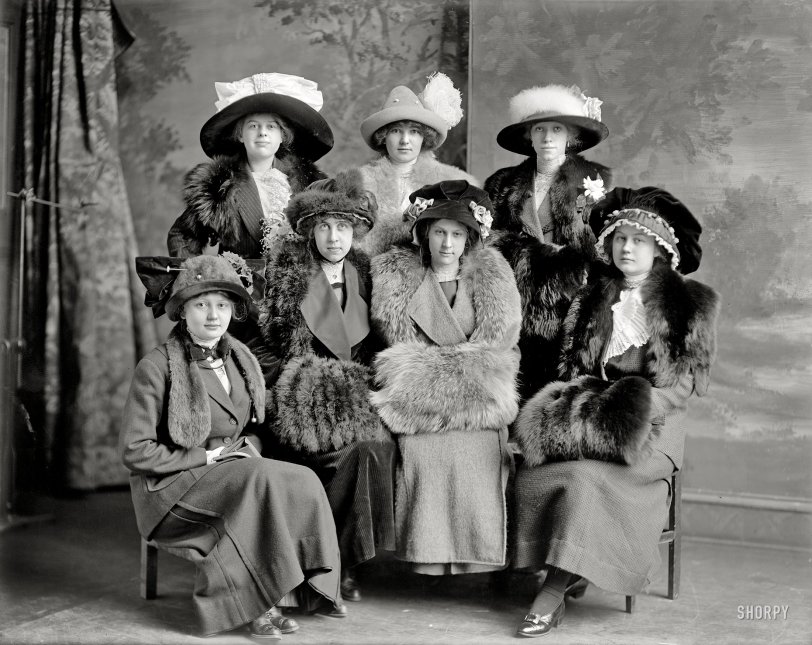 |
| Co-eds from 1912. Image from shorpy.com |
"Don't begin resorting habitually to the Quick Lunch." I was guilty of doing this in the Fall of my freshman year. I had it down to a science: table by the window, two slivers of pizza, half a glass of Mr. Pibb, two peanut butter cookies on the way out the door. It was so utterly depressing. Don't do it.
"Don't attempt, in a large dining hall, to get a place at a society, club, or athletic table for which you have not yet qualified." Know your place, you peons.
"Don't try continually to air the sum of knowledge which you are just assimilating." Don't brag about things you're learning like you're already an expert. Chemistry 101 does not a chemist make.
"Don't keep telling how they do things in that part of the country which you come from." This is true especially if you're a Northerner. If you complain about or mock the South and the people who live here, you cease to become a Northerner and you become a Yankee. Or worse, you become a Carpetbagger. Neither of those are terms of endearment. I had French with a girl from New York who did just this. She spewed nothing but hatred for the South from the very first day of class, and yet she was paying thousands of dollars a year to be here.
"Don't monopolize the conversation at the table, especially if there are older men around." Don't do this, period. It's rude no matter who you're with.
"Don't continually find fault with the things you have to eat. Act as if you were used to eating away from home." Seriously, would you do this at a friend's house? It's not that bad, and everyone else eats it too.
"Don't forget to attend a large percent of your lectures." Class? You mean the thing we do to keep us occupied between football games? If you show up, the professor or instructor will be much more likely to work with you if you have a problem.
"Don't let yourself be mesmerized into taking a lot of things you feel a positive disinclination for." Find your passion. When you do that, you'll actually want to go to class. I was fortunate; I came to college knowing what I wanted to do and I stuck with it. It's okay to change your mind. Don't become a chemical engineer if you really want to teach elementary school. Don't become a doctor if you really want to be an accountant. You'll be a happier person for it.
"Don't mistake the willingness to accept a 'snap' course for a startling aptitude for the subject." A snap course is a class that can be passed with a minimum amount of effort. Just because you enjoyed Psych 101 and made an A just by listening in class, that doesn't mean you need to change your major. You're not the next Sigmund Freud; you're just like everybody else who was in the class and conscious.
"Don't abuse the Elective System if you are privileged to be at a college where it is employed." Some majors, like engineering, nursing, and education, follow very rigid schedules with very little room for extra classes. Other departments (i.e. the Liberal Arts and Humanities) chuck a course catalogue at you and run away. If you fall into the former category, check and double-check everything your adviser tells you. They are not infallible, and I have friends who have been really thrown off by their recommendations. If you fall into the latter category, your adviser can offer good advice, but it's up to you to make sure you're taking the right classes.
"Don't neglect any honest opportunities you may have to make friends with an Instructor or Professor." We can tell when someone is genuinely interested in what we are teaching, and it's appreciated. We are not in academia for the money, I promise. We do it because we cannot fathom a life filled with something other than the subject we love. Your professors can teach you so very much, if you let them. Also, they are generally really cool, intelligent, interesting people. (I might be a bit biased.) If that's not reason enough, we are also the people who will write you letters of recommendation in four years, when you decide you'd rather not become a grownup and you want to go to grad school.
"Don't try to fool the College Doctor into believing that you can't go to lectures, or are going to die, because you've sprained your left thumb." Don't try to con the folks at the Student Health Center. They won't be fooled. On a related note, and I've actually witnessed this before, don't try to weasel your way into your professor's good graces by telling them you were sick yesterday, when the giant black X's are still clearly visible on your hands. Most of us still remember a time when we couldn't legally drink. We know what the X's mean. Save your breath.
"Don't fail to make a list of the required reading in any course." We know you won't read it all. Heck, I've got an English degree. That's essentially having a B.A. in B.S. But read enough of it to be able to form one or two coherent points or questions.
"Don't think that exams can be passed without any preparation." You might have made straight A's in high school without ever cracking a book. You might be able to get through college in the same manner. I was, though it was harder to do. The people who can do that are few and far between. Don't count on your being one of those happy few.
"Don't rely upon special tutors to pass all your courses." Get help when you need it, of course, but don't expect somebody to hold your hand all the time. Also, the book labels this section "Intellectual Narcotics," referring to a magic 'learning pill' in Gulliver's Travels. I'm going to extrapolate on that: don't abuse Adderall or other controlled substances that aren't yours. I know you probably will, but it is a powerful drug. It's very potent and you can get addicted.
"Don't try in your exams to make a hit by writing long papers." One of my favorite professors, when asked how long an essay should be, he always replied, "As long as it needs to be." Answer the question, no more, no less.
"Don't rely wholly upon typewritten notes to get through your courses." I love the fact that this was already an issue 100 years ago. You may find that you also learn better by writing the notes yourself. I never even used a computer in class. I always wrote my notes out in longhand. Just the act of physically writing the information was usually enough to cement it in my memory.
"Don't put off that long piece of written work till the night before it is due." I'd be the biggest hypocrite on the planet if I told you not to do this. I was always totally incapable of writing a decent paper until my back was against the wall. It wasn't at all healthy, but it worked. I used to stay up all night writing, show up in class still twitchy from caffeine, and hand it in. Some people work best in small chunks, with multiple drafts and careful planning. In the words of a wise classmate of mine, "If you only have a minute, it only takes a minute." Figure out which type you are as soon as possible. Know thyself.
"Don't idle away time to such an extent that you get a reputation as an idler, either among your friends or with members of the faculty." Nobody likes a slacker. To quote the United Negro College Fund, "A mind is a terrible thing to waste."
"Don't fail to keep in mind the flight of steps which represents the descent from the plane of regular work." You CAN flunk out of college.
"Don't show disrespect or contempt for the College Dean, or for the retinue within his gates." Don't trash or antagonize J.Bo., or whoever the resident authority figure at your university happens to be. Or if you do, don't sign your name to it. Never leave a paper trail.
I'll have to turn this into a three-parter. I'll finish it tonight or tomorrow.
Until then,
Rah-rah sis-boom-bah,
Callie R.
06 August 2014
Advice to College Freshmen: 1910
First off, I am still alive and kicking. The end of the semester was crazy and I've worked all summer. Posting has fallen by the wayside, but I'm not abandoning the blog.
Another personal update, I start graduate school this month. I'm teaching history classes for the first time and I am so very excited. This is what I've been waiting for my entire life.
This post is dedicated to my little sister Hannah, who starts college this year. She doesn't read my blog, but it's dedicated to her and all her friends. If I had my way, they'd still all be in middle school.
I came across The College Freshman's Don't Book just this week. It was written in 1910 by George Fullerton Evans, and it's absolutely hysterical. The advice given to the college freshman of 1910 is still so pertinent today. If you want to read the book yourself, I've linked to it above. If you actually have a life, I'll hit the highlights here. So, without further ado, here's some advice for the college freshman of 1910, summarized by someone who was a college freshman back in 2010:
"Don't imagine that you own the College Town from the moment you strike it." Let me repeat: YOU DO NOT OWN YOUR COLLEGE TOWN. People lived there before you arrived, and will continue to do so when you leave. I can't stress this one enough. As a local, it's always so exciting when the college kids are on break. You can actually go places.
"Don't expect the College Town to furnish you with good weather; because it won't." This is especially true of Tuscaloosa. We have it all: 100+ degree summers that last into October, violent tornadoes, snow and ice, and flooding. I always take a sort of perverse pleasure in frightening newcomers with tales of the weather.
"Don't forget that sight-seeing relatives and others coming on a visit to the College, must see the Library, the Gymnasium, the Dining Hall, and the Athletic Field." Always be prepared to play tour guide for visiting relatives. If you must, listen in whenever you pass someone giving a campus tour. You might learn something interesting you can pass on to your grandparents later on. You can also make stuff up, if you're so inclined.
"Don't think that your mere arrival at College has made you able to relieve Atlas in holding up the World." Don't delude yourself into thinking you're a grownup yet. Trust me, you're not. As appealing as adult life seems right now, just give it four years.
"Don't, if you can possibly side-step it, begin to live in a place which you do not like." If you have any choice in the matter, don't live in a place you absolutely hate. Also, try not to live with people you absolutely hate.
"Don't treat your Landlady shabbily if you happen to live in a private house." Be nice to your landlady/neighbors. It will make your life easier in the long run.
"Don't begin too early in the term to make your Landlady's house a noisy abode." If you make your landlady/neighbors miserable early on, they won't hesitate to make you miserable later. And you'll probably deserve every bit of it.
"Don't be discouraged if you can't find anything in the right place after the dusting lady has put things in order." Be wary of maintenance people. Most of them are probably lovely, but still, a stranger is coming into your place of residence. College students like to leave their money lying around, most often in the form of expensive electronics. Store them in safe places.
"Don't neglect taste in your room." Keep your room at least moderately clean. Were you raised in a barn?
"Don't try to make a royal residence of your room." It's a dorm room, not a palace. Don't go overboard.
"Don't think that you must have Turkish rugs." Buy cheap furniture. No one will ever know the difference, and at the end of the semester you may just decide that leaving it is easier than moving it out.
"Don't go in for a lot of fine china, the first term." Don't fill your room up with junk. Or anything breakable. It WILL get broken. There's a reason college students can't have anything nice.
"Don't get angry if a Senior comes into your room and looks about and smiles." In a couple of years, you'll realize that a dorm is just a place to sleep. You'll be totally over it then too.
"Don't overdo it with respect to furniture, even if you can afford it; it may make some of your visitors uncomfortable." Don't bring too much stuff. It WILL NOT FIT. And yeah, your visitors will be really uncomfortable if they can't walk because of all your stuff.
"Don't mistake the color of your College." When buying gear in your school colors, make sure you get the right shade. For instance, Alabama's color is CRIMSON. Arkansas, Georgia, and Ole Miss are RED. There's also a big difference between Auburn orange, Tennessee orange, and Texas orange. (They're all horrible, but they're totally different shades of horrible.) Some people will just assume you're colorblind. Most will assume you're stupid.
"Don't buy a roll-top desk or iron safe during your first year." Don't buy something huge your freshman year. Odds are, you won't live in the same place all four years, and you'll have to move it every time. I have friends who lived in a different place every year while they were in school. Before you buy that really cool antique roll-top desk from that estate sale, imagine moving it between two and six times in the next four years. Is it worth it? Probably not. In fact, it's probably the same desk that the 1910 freshman bought, and then had to move three different times while he was at school.
"Don't think you have fairly got on to things while the tray of your trunk is still unpacked." Don't live out your suitcase or laundry bag. It just gets sad after a while.
"Don't look too sober if hazing happens to be in vogue, and the Sophomores order you about." Obviously, hazing is no longer an accepted part of the college experience. Still, if you socialize with upperclassmen, they might give you a hard time at first. Suck it up and take don't take it too seriously. The cooler you play it the less time it lasts. Obviously, however, there's a big difference between joking around and legitimate abuse. Don't confuse the two.
"Don't neglect to receive visitors as if you were glad to see them." Don't act put out when people visit you. Don't neglect your studies, but don't be a miserable hermit. It's a delicate balance.
"Don't play the piano at all hours." Nobody, in the history of higher education has ever liked their loud neighbors' taste in music. In 1910 they didn't want you drunkenly carousing to Scott Joplin. A century later, neither do they want to hear your drunk ass singing along to "Drunk on a Plane" at 2 am on a Wednesday.
"Don't incur the anger of your Proctor by noisy conduct or disrespect." Don't make the RA mad. Some things never ever change. Safe to say, this is one of them.
"Don't wear your Prep-school hat-band or your High-school Fraternity pin upon your almost-manly chest." Don't flash your class ring or your three-month-old prom t-shirt. It's as good as having a flashing neon sign that says "FRESHMAN" following you around.
"Don't dress too 'sporty,' during the first term." Don't dress like you're about to hit the gym unless you are. Muscle shirts and spandex have no place in your Freshman Comp class. You'll look dumb.
"Don't wear long hair." Freshman year isn't the time to let yourself go. There's plenty of time for that later. If you want to grow it out later, go on with your bad self and do it. Just remember that your parents still need to recognize you when you come home for fall break.
"Don't feel it incumbent upon you to wear a beard or a mustache, if you happen to have raised one on the farm or in England, during the summer." Facial hair seldom looks as good as you think it does, gentlemen. A good many of you can't even grow a beard properly yet, you just don't realize it.
"Don't wear too much jewelry; an over-amount of it suggests trips to places where they loan money." You'll also look stupid.
"Don't affect stick-pins bearing large horses' heads or horseshoes, thinking these will demonstrate that you keep a gig." Yeah, don't do that. By the way, a gig is a 'light two-wheeled carriage pulled by one horse.' Those are not the pussy wagons they once were, I guess.
"Don't carry a cane in your freshman year; something is very likely to happen to it." Most likely, the pimp you stole it from will come to take it back. You'll probably be beaten mercilessly, but will deserve every bit of it.
"Don't be found displaying a tall hat." No top hats. They're particularly rude in lecture halls.
"Don't think that crazy or odd clothes are necessarily 'College' clothes. Lots of College men do wear crazy clothes; but it isn't so much because they're College men, as because they're crazy."
On that beautifully true statement, I'll leave it for now. Be looking for the second half of this sometime tonight or tomorrow. At least, I'll give it the old college try.
Always,
Callie R.
Another personal update, I start graduate school this month. I'm teaching history classes for the first time and I am so very excited. This is what I've been waiting for my entire life.
This post is dedicated to my little sister Hannah, who starts college this year. She doesn't read my blog, but it's dedicated to her and all her friends. If I had my way, they'd still all be in middle school.
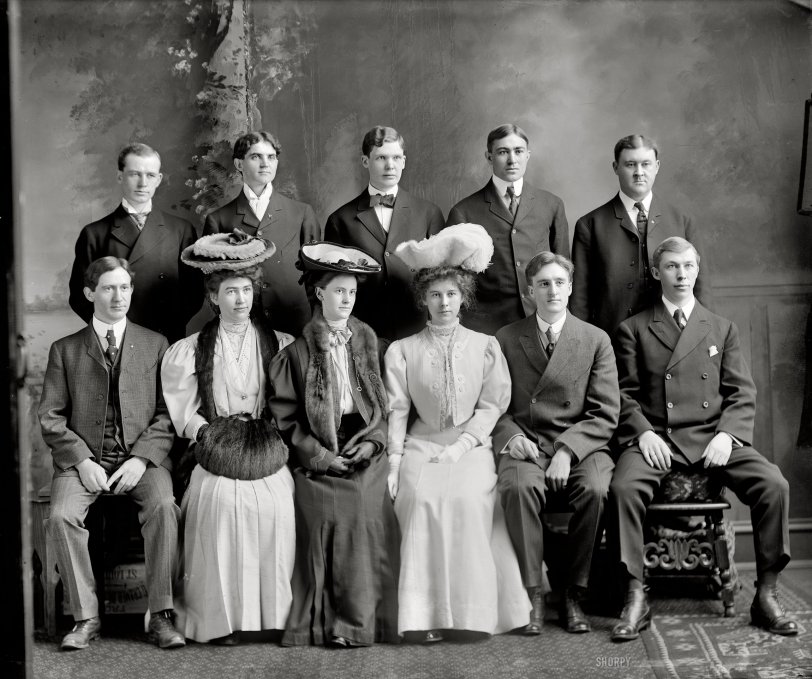 |
| College students in Washington D.C., 1910. Image: shorpy.com |
I came across The College Freshman's Don't Book just this week. It was written in 1910 by George Fullerton Evans, and it's absolutely hysterical. The advice given to the college freshman of 1910 is still so pertinent today. If you want to read the book yourself, I've linked to it above. If you actually have a life, I'll hit the highlights here. So, without further ado, here's some advice for the college freshman of 1910, summarized by someone who was a college freshman back in 2010:
"Don't imagine that you own the College Town from the moment you strike it." Let me repeat: YOU DO NOT OWN YOUR COLLEGE TOWN. People lived there before you arrived, and will continue to do so when you leave. I can't stress this one enough. As a local, it's always so exciting when the college kids are on break. You can actually go places.
"Don't expect the College Town to furnish you with good weather; because it won't." This is especially true of Tuscaloosa. We have it all: 100+ degree summers that last into October, violent tornadoes, snow and ice, and flooding. I always take a sort of perverse pleasure in frightening newcomers with tales of the weather.
"Don't forget that sight-seeing relatives and others coming on a visit to the College, must see the Library, the Gymnasium, the Dining Hall, and the Athletic Field." Always be prepared to play tour guide for visiting relatives. If you must, listen in whenever you pass someone giving a campus tour. You might learn something interesting you can pass on to your grandparents later on. You can also make stuff up, if you're so inclined.
"Don't think that your mere arrival at College has made you able to relieve Atlas in holding up the World." Don't delude yourself into thinking you're a grownup yet. Trust me, you're not. As appealing as adult life seems right now, just give it four years.
"Don't, if you can possibly side-step it, begin to live in a place which you do not like." If you have any choice in the matter, don't live in a place you absolutely hate. Also, try not to live with people you absolutely hate.
"Don't treat your Landlady shabbily if you happen to live in a private house." Be nice to your landlady/neighbors. It will make your life easier in the long run.
"Don't begin too early in the term to make your Landlady's house a noisy abode." If you make your landlady/neighbors miserable early on, they won't hesitate to make you miserable later. And you'll probably deserve every bit of it.
"Don't be discouraged if you can't find anything in the right place after the dusting lady has put things in order." Be wary of maintenance people. Most of them are probably lovely, but still, a stranger is coming into your place of residence. College students like to leave their money lying around, most often in the form of expensive electronics. Store them in safe places.
"Don't neglect taste in your room." Keep your room at least moderately clean. Were you raised in a barn?
"Don't try to make a royal residence of your room." It's a dorm room, not a palace. Don't go overboard.
"Don't think that you must have Turkish rugs." Buy cheap furniture. No one will ever know the difference, and at the end of the semester you may just decide that leaving it is easier than moving it out.
"Don't go in for a lot of fine china, the first term." Don't fill your room up with junk. Or anything breakable. It WILL get broken. There's a reason college students can't have anything nice.
"Don't get angry if a Senior comes into your room and looks about and smiles." In a couple of years, you'll realize that a dorm is just a place to sleep. You'll be totally over it then too.
"Don't overdo it with respect to furniture, even if you can afford it; it may make some of your visitors uncomfortable." Don't bring too much stuff. It WILL NOT FIT. And yeah, your visitors will be really uncomfortable if they can't walk because of all your stuff.
"Don't mistake the color of your College." When buying gear in your school colors, make sure you get the right shade. For instance, Alabama's color is CRIMSON. Arkansas, Georgia, and Ole Miss are RED. There's also a big difference between Auburn orange, Tennessee orange, and Texas orange. (They're all horrible, but they're totally different shades of horrible.) Some people will just assume you're colorblind. Most will assume you're stupid.
"Don't buy a roll-top desk or iron safe during your first year." Don't buy something huge your freshman year. Odds are, you won't live in the same place all four years, and you'll have to move it every time. I have friends who lived in a different place every year while they were in school. Before you buy that really cool antique roll-top desk from that estate sale, imagine moving it between two and six times in the next four years. Is it worth it? Probably not. In fact, it's probably the same desk that the 1910 freshman bought, and then had to move three different times while he was at school.
"Don't think you have fairly got on to things while the tray of your trunk is still unpacked." Don't live out your suitcase or laundry bag. It just gets sad after a while.
"Don't look too sober if hazing happens to be in vogue, and the Sophomores order you about." Obviously, hazing is no longer an accepted part of the college experience. Still, if you socialize with upperclassmen, they might give you a hard time at first. Suck it up and take don't take it too seriously. The cooler you play it the less time it lasts. Obviously, however, there's a big difference between joking around and legitimate abuse. Don't confuse the two.
"Don't neglect to receive visitors as if you were glad to see them." Don't act put out when people visit you. Don't neglect your studies, but don't be a miserable hermit. It's a delicate balance.
"Don't play the piano at all hours." Nobody, in the history of higher education has ever liked their loud neighbors' taste in music. In 1910 they didn't want you drunkenly carousing to Scott Joplin. A century later, neither do they want to hear your drunk ass singing along to "Drunk on a Plane" at 2 am on a Wednesday.
"Don't incur the anger of your Proctor by noisy conduct or disrespect." Don't make the RA mad. Some things never ever change. Safe to say, this is one of them.
"Don't wear your Prep-school hat-band or your High-school Fraternity pin upon your almost-manly chest." Don't flash your class ring or your three-month-old prom t-shirt. It's as good as having a flashing neon sign that says "FRESHMAN" following you around.
"Don't dress too 'sporty,' during the first term." Don't dress like you're about to hit the gym unless you are. Muscle shirts and spandex have no place in your Freshman Comp class. You'll look dumb.
"Don't wear long hair." Freshman year isn't the time to let yourself go. There's plenty of time for that later. If you want to grow it out later, go on with your bad self and do it. Just remember that your parents still need to recognize you when you come home for fall break.
"Don't feel it incumbent upon you to wear a beard or a mustache, if you happen to have raised one on the farm or in England, during the summer." Facial hair seldom looks as good as you think it does, gentlemen. A good many of you can't even grow a beard properly yet, you just don't realize it.
"Don't wear too much jewelry; an over-amount of it suggests trips to places where they loan money." You'll also look stupid.
"Don't affect stick-pins bearing large horses' heads or horseshoes, thinking these will demonstrate that you keep a gig." Yeah, don't do that. By the way, a gig is a 'light two-wheeled carriage pulled by one horse.' Those are not the pussy wagons they once were, I guess.
"Don't carry a cane in your freshman year; something is very likely to happen to it." Most likely, the pimp you stole it from will come to take it back. You'll probably be beaten mercilessly, but will deserve every bit of it.
"Don't be found displaying a tall hat." No top hats. They're particularly rude in lecture halls.
"Don't think that crazy or odd clothes are necessarily 'College' clothes. Lots of College men do wear crazy clothes; but it isn't so much because they're College men, as because they're crazy."
On that beautifully true statement, I'll leave it for now. Be looking for the second half of this sometime tonight or tomorrow. At least, I'll give it the old college try.
Always,
Callie R.
23 March 2014
Antebellum Baby Names: Part Three
My friends, I am on a roll. Three posts in five days is great for me. I always forget how much I enjoy writing about history, and writing about it in my own irreverent way. If I could ever make a living doing something like this, you better believe I would. Anyway, I digress. Here are E and F names for you to consider naming your next daughter.
Eve. #558, it was off the list in 1937, and from 1985-1997. It comes from the Hebrew word for "to breathe." The most famous (and first) bearer of the name is, of course, Eve from Genesis (written 6th-5th century BC). I think Eve is a nice name, biblical, with a streak of the bad girl, though not as daring as Jezebel or Delilah. I predict its popularity will increase, especially if names like Ava and Ada stay in vogue.

Elfrida. This spelling never ranked, but variant Elfreda ranked in 1894. This Anglo-Saxon name means 'elf strength,' which is kind of cool. One famous bearer is Elfrida Andree (1841-1929), a Swedish organist, composer, and feminist. This name is dead, never to return.
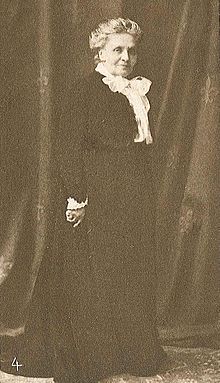
Elinor. Not ranked, it fell off the list after 1953. I've actually always liked this spelling, and think it might come back, especially if classic names for girls remain trendy. It's easier to spell than Eleanor, and makes more sense phonetically. Plus, it seems friendlier and more easygoing than Eleanor. One famous bearer is Elinor Glyn (1864-1943), a British scriptwriter and novelist who wrote things that were just on the edge of decent. She also came up with the concept of the It-Girl.

Elonore. This name has never ranked, nor will it ever. I can't find anyone famous with this name. Godey's missed the boat on this one.

Eleanor. #195, it has never fallen from the list. It ranked as a boy's name in 1908. Godey's says the name means "compassionate," but that definition seems rather spurious to me. Behind the Name says that the name originated with Eleanor of Aquitaine (1124-1204). She was named after her mother, Aenor, but then called alia Aenor, the other Aenor. One of the most powerful women of the Middle Ages, the name spread through her influence. It seems that the name breeds powerful women, because centuries later First Lady Eleanor Roosevelt (1884-1962) used her intellect and ambition to be a real force for positive change in the United States.


Eleanora. Not ranked, it fell off the list after 1939. A pretty name, but perhaps needlessly complex, it is a step up from the already-elaborate Eleanor. A famous bearer is the legendary actress, better known by her last name, Duse (1858-1924).

Eliza. #225, it was off the list in 1954, 1958-65, 1967, and 1971. It made the boys' list in 1880. I was surprised by the years it failed to rank, because the 1956 Broadway musical My Fair Lady, as well as the 1964 film adaptation were such huge hits. Of course, the most famous bearer is Eliza Doolittle, who made her debut in George Bernard Shaw's play, Pygmalion (1912). Ladylike, but mischievous and spirited, I think Eliza is a splendid name, for flower girls and duchesses alike.

Elizabeth. #10, it has never fallen from the list. Indeed, it has never even fallen from the top 30. It's also seen fairly steady use as a male name, ranking in 1880, 1882-1912, 1926-27, 1929-32, 1934-42, 1960-61, 1965, 1969-70, 1979, and 1981-89. It means "My God is an oath" in Hebrew. It's a stately name, but still approachable, and can be shortened in a million different ways. Most importantly, it's timeless, and has thus escaped the fate of Barbara and Deborah. There are tons of famous bearers, but two of the most prominent are Queen Elizabeth I (1533-1603) and screen star Elizabeth Taylor (1932-2011).
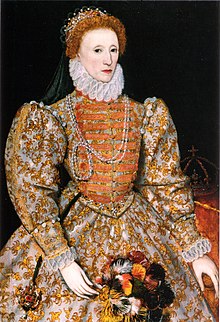

Elvira. Not ranked, it fell off the list after 1976, but reappeared in 1978 and 1981. It is a Visigothic name that means "all true." A famous bearer is Elvira Casazza (1887-1965), an Italian mezzo-soprano. I wouldn't expect too much from the name.

Elmira. It means "noble famous." It was on the list until 1932, in 1934-35, and in 1937. A famous bearer is the character Elmire in Moliere's 1664 play Tartuffe. The image below is from the German National Archive. Both Elmira and Elvira are kind of cool names, but seem stuffy and harsh.

Emma. #2, it has never fallen off the list. It was #1 in 2008, and has made the top 5 since 2002. It was ranked #3 from 1880-86. It made the boys' list 1880-96, 1898-1904, 1906-07, and in 1910. It comes from the German for 'whole.' One famous bearer, of many, is Emma, Lady Hamilton (1765-1815). An actress and model, she was beautiful, charming, and smart. An ambitious suitor who wanted to be rid of her to marry a wealthy woman tricked Emma into marrying his widowed uncle and shipped her off to Naples. She gained a title, and at least enjoyed each other's company. She hung out with royalty and charmed everyone she met, including Admiral Horatio Nelson. She became his mistress, and her elderly husband was totally cool with it, and all three of them were great friends. After a meandering sea voyage, the three made it home to Britain, and lived together. Scandalized, the Royal Navy sent Nelson back to sea, and the rest is history. Sadly, the British government refused to aid Emma and her daughter Horatia, and she died a penniless alcoholic at the age of 49. Still, a truly remarkable woman. Emma is in absolutely no danger.
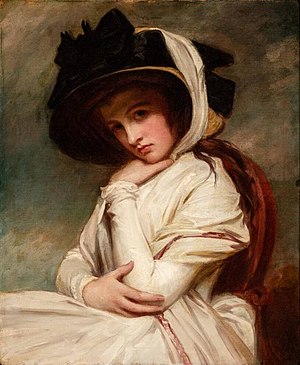
Emmeline. Never ranked, I think it's a lovely name, and one that may catch on here. Parents love to give children fusion names, and even though Emmeline is a Norman name, it is a combination of the perennial favorites Emma and Madeline. A famous bearer is the famous British militant suffragist, Emmeline Pankhurst (1858-1928).
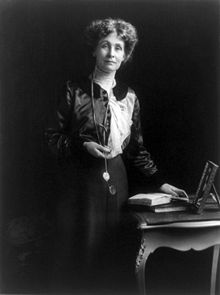
Eugenia. Not ranked, it fell off the list after 1984. It means 'well-born' in Greek. A famous bearer is Chilean patroness of the arts, Eugenia Errazuriz (1860-1951). She inspired Coco Chanel, and hung out with Picasso, Stravinsky, Cocteau, and many other famous people. I don't expect to see the name make any resurgence in popularity, but I do like it. It's feminine and delicate, but also very distinguished.

Eloise. #364, it dropped off the list after 1965, and only reemerged in 2009, climbing astonishingly fast. It means 'healthy and wide' in German. The most famous bearer of the name is very near and dear to my heart, the titular heroine of the Eloise books (1955), written by Kay Thompson and illustrated by Hilary Knight. They tell the story of a precocious six-year-old who lives at the Plaza Hotel and wreaks havoc. I think the name will continue to do well. It's charming and cute, but seems timeless and classic.

Emily. #6, it has never fallen off the list. Not popular in the English-speaking world until the 18th century, it comes from a Late Latin family name that means 'rival.' [A brief aside, if you knew me in middle or high school, you will grasp the significance of this.] One famous bearer is the American poet Emily Dickinson (1830-86). I think this name is sweet and charming, while being very humble, and perhaps demure.

Emilia. #268, it was on the list until 1942, 1947-48, 1982, 1988, and since 1990. It has increased a good deal in the last three years, some of which may be due to the influence of actress Emilia Clark (born 1987), who plays Daenerys Targaryen on Game of Thrones.

Ethel. Not ranked, it fell off the list after 1975, but was in the top 10 from 1888-1903. It ranked as a male name 1880-81, 1884-1911, and in 1913. Surprisingly unisex, it means 'noble' in Old English. I think it will eventually reappear (as a girls' name), but not immediately. It still sounds rather matronly, but it would make a really cute middle or double name. One famous bearer is Broadway actress Ethel Merman (1908-84). Another namesake is actress Ethel Barrymore (1879-1959), Drew's great-aunt.

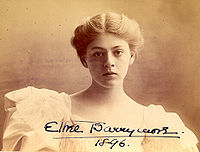
Eunice. Not ranked, it fell off the list after 1978, but reappeared in 1980, 1982-83, and from 1985-95. It means 'good victory' in Greek, which is cool, but this name is dead, probably for a good long while. I don't know how it became the go-to nerd name in pop culture, but it did. One famous bearer is Eunice Kennedy Shriver (1921-2009), sister of John, Bobby, and Ted, she was also the sister of Rosemary, the eldest Kennedy daughter, whose mental capacity, on par with that of an 8-12-year-old, was destroyed by a botched lobotomy, at the age of 23 she was reduced to the mental capacity of a two-year-old. This sad outcome sparked a passion in Eunice, and she devoted her efforts to aiding the mentally ill, and especially the developmentally disabled. Her most famous achievement was founding the Special Olympics.
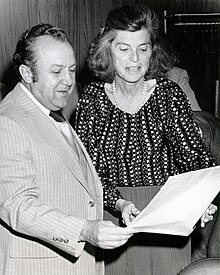
Ermengarde. This name never ranked, and I seriously doubt it ever will. Very ancient, it derives from the Germanic words meaning 'whole protection.' It was quite popular in the early Middle Ages. A famous-ish bearer is Ermengarde, Viscountess of Narbonne (1127-1197). She seems to have had a bit of political power, and was quoted three times in the 1190 "Treatise on Courtly Love," and may have had a Viking write some poetry to her. Like I said, there were tons of medieval women with the name, but most medieval women didn't do much. The image is a sketch of a coin minted by her husband; it would bother me if one name didn't have an image.

Euphemia. Not ranked, it was on the list in 1880-81, 1883-85, 1889, and 1903. It means 'to speak well' in Greek. One famous bearer is Euphemia de Ross (died 1386), a Queen Consort of Scotland. The 'Eu-' just seem to have lost their appeal.
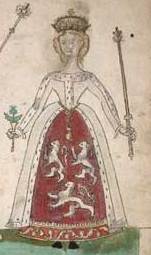
Euphrasie. Never ranked, it means 'good cheer' in Greek. This Eu- name is fairly pretty. One famous bearer is Mother Euphrasie Hinkle (1847-89), a Methodist convert who became Superior General of the Sisters of Providence. In Victor Hugo's novel Les Miserables (1862), Cosette assumes the alias Euphrasie Fauchelevant, so if you love Les Mis, but don't want to make your little lark such an obvious homage, you can opt for this extremely subtle nod.


Frances. #764, Frances has never fallen from the list. It made the boys' list from 1880-1944, and in 1947. It means 'Frenchman.' One of many, many famous bearers is Frances Newton, Lady Cobham (1539-92), one of Elizabeth I's BFFs. I think the name will continue to hang on for a good while longer.

Fanny. Not ranked, it fell off the list after 1936, and reappeared once in 1938. A diminutive of Frances, this is a rather cute nickname, except for the fact that it's anatomical slang on both sides of the pond. Here in the States it means butt, and in the UK it means vulva. Yeah, Fanny, as a name, is dead. One famous bearer is the American comedienne Fanny Brice (1891-1951). She became famous playing in the Ziegfeld Follies, and Barbara Streisand played her in Funny Girl. Another famous namesake is Fanny Jackson Coppin (1837-1913). Born a slave, she graduated from college in 1865, and became an educator and missionary. She was really cool.


Francisca. Not ranked, it made the list from 1882-1954, in 1957, 1960, 1969, 1971, 1973-76, 1978, 1980-82, and 1985. A lovely Spanish/Portuguese form of Frances, I expect this name will come back sooner rather than later. A famous bearer is Maria Francisca of Savoy (1646-83), Queen of Portugal.

Florence. Not ranked, it fell off the list after 1981. It was in the top 10 from 1886-1904, and ranked as a male name from 1880-1912, and in 1914. From the Latin meaning 'flourishing,' I expect this name will flourish again in the States soon enough. It's quite a nice name, elegant without being ostentatious, and feminine but strong. A famous bearer is Florence Nightingale (1820-1910), the founder of modern nursing. When she traveled to the Crimea, nursing was not considered a proper occupation for women. She also established the first secular nursing school, helped draft policy that improved healthcare in England, advocated for better living conditions in India, and helped get Indian prostitution laws that were overly harsh on women struck down. She was a statistician and a prodigious writer, and all new nurses take the Nightingale Pledge. This would be a great name for a nurse's baby, or for a baby who overcame health problems with the help of dedicated nurses. What better way to honor a woman who changed not just medicine, but also the prospects of all career-minded women who came after her?

Flora. Not ranked, it fell off the list after 1972. It ranked as a male name in 1880 and 1904. From the Latin for 'flower,' this is a simple and cute name that I think will one day make a comeback. A famous bearer is Flora MacDonald (1722-90), a Scottish woman who was so badass she deserves her own post. In a nutshell, she helped Bonnie Prince Charlie escape the English by dressing him up as a woman, was imprisoned in the Tower of London, moved to America, helped the British during the Revolution [nobody's perfect], had her husband taken prisoner, lost everything when the Patriots burned her home, got shot while fighting pirates, and still managed to impress people with her gentle nature, kindness, and elegance.

Fidelia. Not ranked, it made the list in 1880, 1882, and 1890. It means 'faithful' in Latin. I do think it's a pretty name, but dictators ruin names, and people might assume a girl with this name was named after Mr. Castro. A famous bearer is American watercolor artist Fidelia Bridges (1834-1923), she was involved in the American Forest Association, and some of her works are housed in the Smithsonian and the Metropolitan Museum of Art.

Floribel. Never ranked, I can't even find anybody with this name. Enjoy one of Fidelia's watercolors.

Flavia. Not ranked, it only made the list in 1881 and 1884. It means 'golden-haired' in Latin. I think it's a pretty name, but don't expect it to ever take off, barring some pop culture phenomenon with a heroine named Flavia. That might get it on the board, but not much else. A famous bearer is one of main characters in Anthony Hope's 1894 novel, The Prisoner of Zenda, which sounds like it should be a video game, but isn't.
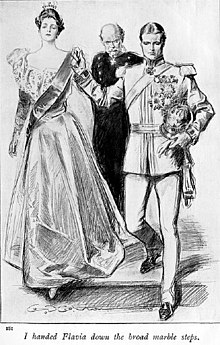
Felicia. Not ranked, it made the list 1880-82, 1884, 1886-91, 1895, and 1897-2005. I suspect it will pop back up in a few years, since it seems like it has a tendency to do that. It means 'lucky' in Latin. A famous bearer is English Romantic poet Felicia Hemans (1793-1835). Like all good Romantics, she died young, but unlike her contemporaries, she gave birth to five sons and balanced a family with her literary career, not sacrificing one for the other.

Eve. #558, it was off the list in 1937, and from 1985-1997. It comes from the Hebrew word for "to breathe." The most famous (and first) bearer of the name is, of course, Eve from Genesis (written 6th-5th century BC). I think Eve is a nice name, biblical, with a streak of the bad girl, though not as daring as Jezebel or Delilah. I predict its popularity will increase, especially if names like Ava and Ada stay in vogue.

Elfrida. This spelling never ranked, but variant Elfreda ranked in 1894. This Anglo-Saxon name means 'elf strength,' which is kind of cool. One famous bearer is Elfrida Andree (1841-1929), a Swedish organist, composer, and feminist. This name is dead, never to return.

Elinor. Not ranked, it fell off the list after 1953. I've actually always liked this spelling, and think it might come back, especially if classic names for girls remain trendy. It's easier to spell than Eleanor, and makes more sense phonetically. Plus, it seems friendlier and more easygoing than Eleanor. One famous bearer is Elinor Glyn (1864-1943), a British scriptwriter and novelist who wrote things that were just on the edge of decent. She also came up with the concept of the It-Girl.

Elonore. This name has never ranked, nor will it ever. I can't find anyone famous with this name. Godey's missed the boat on this one.

Eleanor. #195, it has never fallen from the list. It ranked as a boy's name in 1908. Godey's says the name means "compassionate," but that definition seems rather spurious to me. Behind the Name says that the name originated with Eleanor of Aquitaine (1124-1204). She was named after her mother, Aenor, but then called alia Aenor, the other Aenor. One of the most powerful women of the Middle Ages, the name spread through her influence. It seems that the name breeds powerful women, because centuries later First Lady Eleanor Roosevelt (1884-1962) used her intellect and ambition to be a real force for positive change in the United States.


Eleanora. Not ranked, it fell off the list after 1939. A pretty name, but perhaps needlessly complex, it is a step up from the already-elaborate Eleanor. A famous bearer is the legendary actress, better known by her last name, Duse (1858-1924).

Eliza. #225, it was off the list in 1954, 1958-65, 1967, and 1971. It made the boys' list in 1880. I was surprised by the years it failed to rank, because the 1956 Broadway musical My Fair Lady, as well as the 1964 film adaptation were such huge hits. Of course, the most famous bearer is Eliza Doolittle, who made her debut in George Bernard Shaw's play, Pygmalion (1912). Ladylike, but mischievous and spirited, I think Eliza is a splendid name, for flower girls and duchesses alike.

Elizabeth. #10, it has never fallen from the list. Indeed, it has never even fallen from the top 30. It's also seen fairly steady use as a male name, ranking in 1880, 1882-1912, 1926-27, 1929-32, 1934-42, 1960-61, 1965, 1969-70, 1979, and 1981-89. It means "My God is an oath" in Hebrew. It's a stately name, but still approachable, and can be shortened in a million different ways. Most importantly, it's timeless, and has thus escaped the fate of Barbara and Deborah. There are tons of famous bearers, but two of the most prominent are Queen Elizabeth I (1533-1603) and screen star Elizabeth Taylor (1932-2011).


Elvira. Not ranked, it fell off the list after 1976, but reappeared in 1978 and 1981. It is a Visigothic name that means "all true." A famous bearer is Elvira Casazza (1887-1965), an Italian mezzo-soprano. I wouldn't expect too much from the name.

Elmira. It means "noble famous." It was on the list until 1932, in 1934-35, and in 1937. A famous bearer is the character Elmire in Moliere's 1664 play Tartuffe. The image below is from the German National Archive. Both Elmira and Elvira are kind of cool names, but seem stuffy and harsh.

Emma. #2, it has never fallen off the list. It was #1 in 2008, and has made the top 5 since 2002. It was ranked #3 from 1880-86. It made the boys' list 1880-96, 1898-1904, 1906-07, and in 1910. It comes from the German for 'whole.' One famous bearer, of many, is Emma, Lady Hamilton (1765-1815). An actress and model, she was beautiful, charming, and smart. An ambitious suitor who wanted to be rid of her to marry a wealthy woman tricked Emma into marrying his widowed uncle and shipped her off to Naples. She gained a title, and at least enjoyed each other's company. She hung out with royalty and charmed everyone she met, including Admiral Horatio Nelson. She became his mistress, and her elderly husband was totally cool with it, and all three of them were great friends. After a meandering sea voyage, the three made it home to Britain, and lived together. Scandalized, the Royal Navy sent Nelson back to sea, and the rest is history. Sadly, the British government refused to aid Emma and her daughter Horatia, and she died a penniless alcoholic at the age of 49. Still, a truly remarkable woman. Emma is in absolutely no danger.

Emmeline. Never ranked, I think it's a lovely name, and one that may catch on here. Parents love to give children fusion names, and even though Emmeline is a Norman name, it is a combination of the perennial favorites Emma and Madeline. A famous bearer is the famous British militant suffragist, Emmeline Pankhurst (1858-1928).

Eugenia. Not ranked, it fell off the list after 1984. It means 'well-born' in Greek. A famous bearer is Chilean patroness of the arts, Eugenia Errazuriz (1860-1951). She inspired Coco Chanel, and hung out with Picasso, Stravinsky, Cocteau, and many other famous people. I don't expect to see the name make any resurgence in popularity, but I do like it. It's feminine and delicate, but also very distinguished.

Eloise. #364, it dropped off the list after 1965, and only reemerged in 2009, climbing astonishingly fast. It means 'healthy and wide' in German. The most famous bearer of the name is very near and dear to my heart, the titular heroine of the Eloise books (1955), written by Kay Thompson and illustrated by Hilary Knight. They tell the story of a precocious six-year-old who lives at the Plaza Hotel and wreaks havoc. I think the name will continue to do well. It's charming and cute, but seems timeless and classic.

Emily. #6, it has never fallen off the list. Not popular in the English-speaking world until the 18th century, it comes from a Late Latin family name that means 'rival.' [A brief aside, if you knew me in middle or high school, you will grasp the significance of this.] One famous bearer is the American poet Emily Dickinson (1830-86). I think this name is sweet and charming, while being very humble, and perhaps demure.

Emilia. #268, it was on the list until 1942, 1947-48, 1982, 1988, and since 1990. It has increased a good deal in the last three years, some of which may be due to the influence of actress Emilia Clark (born 1987), who plays Daenerys Targaryen on Game of Thrones.

Ethel. Not ranked, it fell off the list after 1975, but was in the top 10 from 1888-1903. It ranked as a male name 1880-81, 1884-1911, and in 1913. Surprisingly unisex, it means 'noble' in Old English. I think it will eventually reappear (as a girls' name), but not immediately. It still sounds rather matronly, but it would make a really cute middle or double name. One famous bearer is Broadway actress Ethel Merman (1908-84). Another namesake is actress Ethel Barrymore (1879-1959), Drew's great-aunt.


Eunice. Not ranked, it fell off the list after 1978, but reappeared in 1980, 1982-83, and from 1985-95. It means 'good victory' in Greek, which is cool, but this name is dead, probably for a good long while. I don't know how it became the go-to nerd name in pop culture, but it did. One famous bearer is Eunice Kennedy Shriver (1921-2009), sister of John, Bobby, and Ted, she was also the sister of Rosemary, the eldest Kennedy daughter, whose mental capacity, on par with that of an 8-12-year-old, was destroyed by a botched lobotomy, at the age of 23 she was reduced to the mental capacity of a two-year-old. This sad outcome sparked a passion in Eunice, and she devoted her efforts to aiding the mentally ill, and especially the developmentally disabled. Her most famous achievement was founding the Special Olympics.

Ermengarde. This name never ranked, and I seriously doubt it ever will. Very ancient, it derives from the Germanic words meaning 'whole protection.' It was quite popular in the early Middle Ages. A famous-ish bearer is Ermengarde, Viscountess of Narbonne (1127-1197). She seems to have had a bit of political power, and was quoted three times in the 1190 "Treatise on Courtly Love," and may have had a Viking write some poetry to her. Like I said, there were tons of medieval women with the name, but most medieval women didn't do much. The image is a sketch of a coin minted by her husband; it would bother me if one name didn't have an image.

Euphemia. Not ranked, it was on the list in 1880-81, 1883-85, 1889, and 1903. It means 'to speak well' in Greek. One famous bearer is Euphemia de Ross (died 1386), a Queen Consort of Scotland. The 'Eu-' just seem to have lost their appeal.

Euphrasie. Never ranked, it means 'good cheer' in Greek. This Eu- name is fairly pretty. One famous bearer is Mother Euphrasie Hinkle (1847-89), a Methodist convert who became Superior General of the Sisters of Providence. In Victor Hugo's novel Les Miserables (1862), Cosette assumes the alias Euphrasie Fauchelevant, so if you love Les Mis, but don't want to make your little lark such an obvious homage, you can opt for this extremely subtle nod.


Frances. #764, Frances has never fallen from the list. It made the boys' list from 1880-1944, and in 1947. It means 'Frenchman.' One of many, many famous bearers is Frances Newton, Lady Cobham (1539-92), one of Elizabeth I's BFFs. I think the name will continue to hang on for a good while longer.

Fanny. Not ranked, it fell off the list after 1936, and reappeared once in 1938. A diminutive of Frances, this is a rather cute nickname, except for the fact that it's anatomical slang on both sides of the pond. Here in the States it means butt, and in the UK it means vulva. Yeah, Fanny, as a name, is dead. One famous bearer is the American comedienne Fanny Brice (1891-1951). She became famous playing in the Ziegfeld Follies, and Barbara Streisand played her in Funny Girl. Another famous namesake is Fanny Jackson Coppin (1837-1913). Born a slave, she graduated from college in 1865, and became an educator and missionary. She was really cool.


Francisca. Not ranked, it made the list from 1882-1954, in 1957, 1960, 1969, 1971, 1973-76, 1978, 1980-82, and 1985. A lovely Spanish/Portuguese form of Frances, I expect this name will come back sooner rather than later. A famous bearer is Maria Francisca of Savoy (1646-83), Queen of Portugal.

Florence. Not ranked, it fell off the list after 1981. It was in the top 10 from 1886-1904, and ranked as a male name from 1880-1912, and in 1914. From the Latin meaning 'flourishing,' I expect this name will flourish again in the States soon enough. It's quite a nice name, elegant without being ostentatious, and feminine but strong. A famous bearer is Florence Nightingale (1820-1910), the founder of modern nursing. When she traveled to the Crimea, nursing was not considered a proper occupation for women. She also established the first secular nursing school, helped draft policy that improved healthcare in England, advocated for better living conditions in India, and helped get Indian prostitution laws that were overly harsh on women struck down. She was a statistician and a prodigious writer, and all new nurses take the Nightingale Pledge. This would be a great name for a nurse's baby, or for a baby who overcame health problems with the help of dedicated nurses. What better way to honor a woman who changed not just medicine, but also the prospects of all career-minded women who came after her?

Flora. Not ranked, it fell off the list after 1972. It ranked as a male name in 1880 and 1904. From the Latin for 'flower,' this is a simple and cute name that I think will one day make a comeback. A famous bearer is Flora MacDonald (1722-90), a Scottish woman who was so badass she deserves her own post. In a nutshell, she helped Bonnie Prince Charlie escape the English by dressing him up as a woman, was imprisoned in the Tower of London, moved to America, helped the British during the Revolution [nobody's perfect], had her husband taken prisoner, lost everything when the Patriots burned her home, got shot while fighting pirates, and still managed to impress people with her gentle nature, kindness, and elegance.

Fidelia. Not ranked, it made the list in 1880, 1882, and 1890. It means 'faithful' in Latin. I do think it's a pretty name, but dictators ruin names, and people might assume a girl with this name was named after Mr. Castro. A famous bearer is American watercolor artist Fidelia Bridges (1834-1923), she was involved in the American Forest Association, and some of her works are housed in the Smithsonian and the Metropolitan Museum of Art.

Floribel. Never ranked, I can't even find anybody with this name. Enjoy one of Fidelia's watercolors.

Flavia. Not ranked, it only made the list in 1881 and 1884. It means 'golden-haired' in Latin. I think it's a pretty name, but don't expect it to ever take off, barring some pop culture phenomenon with a heroine named Flavia. That might get it on the board, but not much else. A famous bearer is one of main characters in Anthony Hope's 1894 novel, The Prisoner of Zenda, which sounds like it should be a video game, but isn't.

Felicia. Not ranked, it made the list 1880-82, 1884, 1886-91, 1895, and 1897-2005. I suspect it will pop back up in a few years, since it seems like it has a tendency to do that. It means 'lucky' in Latin. A famous bearer is English Romantic poet Felicia Hemans (1793-1835). Like all good Romantics, she died young, but unlike her contemporaries, she gave birth to five sons and balanced a family with her literary career, not sacrificing one for the other.

16 March 2014
Antebellum Baby Names: Part Two
I thought that I was weird for loving lists of baby names, but everybody I talked to today seemed to enjoy the post. They were all young women, so maybe it's just a girl thing. Regardless, back by popular demand, here are the B, C, and D names.
Blanche. Not ranked, it fell off the list after 1964. It made the boys' list in 1887, 1889, 1891, 1898-99, 1902, 1906, and 1908. It was a medieval French nickname that meant white. A famous fictional bearer is Blanche DuBois, from the Tennessee Williams drama, A Streetcar Named Desire (published 1947). I think it's a pretty name that may come back in a few years.

Bertha. Not ranked, fell off the list after 1985. It ranked as a boy's name in 1881-98, 1900-07, and 1910. It was in the top 10 until 1885. It's a Germanic name that means bright one. The Normans brought it over to England, but it died out after the middle ages, only to be revived in the 19th century. A famous bearer is Bertha Krupp (1886-1957), the head of the Krupp industrial dynasty. The famous German WWI howitzer, Big Bertha, is named for her. This name is dead in the water. Apart from it not being a terribly pretty name, the fact that people still know the Big Bertha gun a century after the Great War means any little girl with the misfortune to be named Bertha will be called Big Bertha, no matter what her size.

Beatrice. #690, it was off the list in 1997, 1999, and 2002-05. It ranked as a boy's name 1899-1900, 1902, 1905-06, and 1908-10. It is the Italian version of Beatrix, which comes from the Late Roman name Viatrix, which means voyager. A famous bearer, and the woman who helped the name spread, is Beatrice Portinari (1265-90), made famous as Dante's guide in Il Paradiso. They only met twice, the first time as children, but Dante apparently always loved her. I predict Beatrice will continue to gain popularity. Full disclosure, if I ever have a little girl, her name will be Dorothy Beatrice. Dorothy for my great aunt Dot, and Beatrice for my maternal grandmother.
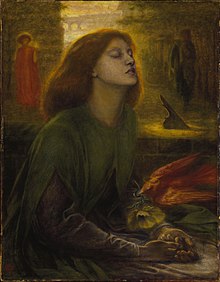
Barbara. #900, it has never fallen off the list. It was used as a boy's name from 1929-60, and 1962-63, when it was in or near the top 10 for girls. While it never hit the #1 spot, it was ranked #2 from 1937-44, with about 3% of all girls born those years named Barbara. It comes from the Greek word for stranger. It fell out of favor after the Reformation, but was revived in the 19th century. One famous bearer, out of many, is actress Barbara Stanwyck (1907-90). I like the name, but it feels dated, and I expect it to drop off the list in the next few years. That said, I think it will be back on the list eventually, probably sooner rather than later.

Cecilia. #216, it has never fallen off the list. It comes from the Latin word for blind. The Normans brought it to England. A famous bearer is St Cecilia (2nd century). She is the patron saint of music and musicians because, according to hagiography, while musicians played at her wedding she "sang in her heart to the Lord." I think Cecilia is a lovely name, and don't expect its popularity (or that of its many variants) to wane anytime soon.

Cicily. Not ranked, nor has it ever been. Other variants Cecily and Cicely are more common. The only famous bearer I could find is Cicily Isabel Fairfield (1892-1983), better known at the influential British author Dame Rebecca West, a name she borrowed from one of Ibsen's rebellious heroines. She was an exceptional woman, but my favorite anecdote about her is as follows: she poked fun at HG Wells in a review in 1912, calling him an old maid. The review got his attention, and he invited the author over for lunch. They became lovers the next year, and their affair lasted for ten years. They had a son in 1914, and remained close friends until Wells died in 1946. I don't anticipate Cicily catching on as a name.

Caroline. #79, it has never been off the list. It's as popular now as it was in 1884. It ranked as a boy's name in 1891. A feminine form of Charles, it means man, essentially. A famous bearer is Caroline Herschel (1750-1848), a German-British astronomer and the first paid female scientist. I love the name Caroline, but a little girl named such must be prepared to have "Sweet Caroline" sung to her by every single person she meets.

Clara. #136, it has never fallen off the list, and was in the top 10 for several years in the 1880s and '90s. It ranked as a boy's name in 1880-81, 1883-89, 1891-96, and 1899-1910. Clara means clear and bright in Latin. A famous bearer is German composer Clara Schumann (1819-96). I expect Clara will continue to rise in popularity. It's very classic: feminine, strong, and less dated than Claire.

Claudia. #595, it has never fallen off the list. From the Latin word for crippled. A famous bearer is Claudia Octavia (39-62), wife of the Emperor Nero. As Roman names go, it isn't one of my favorites, though I don't dislike it. I predict its popularity will decline in the coming years.

Claudine. Not ranked, it was on the list from 1880-82, 1893, 1896, 1898-99, 1901-52, 1954, 1966-75. A famous bearer is Claudine Francoise Mignot (1624-1711), a French adventuress who made herself a fortune by being pretty and smart, and marrying rich older men. I don't think the name will make a comeback anytime in the near future, but you never really know.

Clementina. Not ranked, made the list in 1908. Comes from the Latin for merciful. A famous bearer is Maria Clementina Sobieski (1702-35), a Polish noblewoman. I don't think this name will ever be revived.

Constance. Not ranked, was on the list until 1999. It means exactly what it says on the tin, and I think it's a lovely name. A famous bearer is actress Constance Bennett (1904-65). I wouldn't be surprised if Constance makes a comeback soon. Parents often opt for virtue names for little girls, and Constance will stand out in a crowd of Hopes, Faiths, Graces, and Joys.

Constantia. Never ranked, it's a Late Roman name. It was the pen name of Judith Sargent Murray (1751-1820), an American writer. She believed in the equality of the sexes and carried on lively correspondence with many of America's founding fathers. I think it's a pretty name, but don't expect it to gain any popularity.

Cornelia. Not ranked, fell off the list after 1965. From the Latin word for horn, it has been popular since the 18th century. A famous bearer of the name is Cornelia Africana (190-100 BC), considered the ideal Roman woman. The daughter of a war hero, she married an older man. They truly loved each other and had twelve children (highly unusual at the time), three of whom survived to adulthood. After her husband died she chose not to remarry, and even turned down a king's marriage proposal. She educated her children, and studied Latin and Greek literature for her own benefit. Her two surviving sons, Gaius and Tiberius Gracchus became reform-minded politicians, despite their privileged background. She is one of four Roman women whose writings survive. I love the name Cornelia and wouldn't be surprised if it reappeared on the list within the next generation.

Callista. Never ranked, but variant Calista made the list in 1880-81, and from 1998-2004. It comes from the Greek for most beautiful. A famous bearer is American actress Calista Flockhart (born 1964). I doubt the name will ever gain much ground, but it's not a bad name, and it shares a root with my own name, Callie!

Claribel. Not ranked, it was on the list from 1881-85, 1889, 1891, 1893-94, 1896, 1898-99, 1901-04, 1906-09, 1912-14, and 1916-17. A famous bearer of the name is socialite and art collector Claribel Cone (1864-1929). I think the name is cute, but doubt it will catch on. In the picture, Claribel is on the left, her sister Etta is on the right, and Gertrude Stein is in the middle.
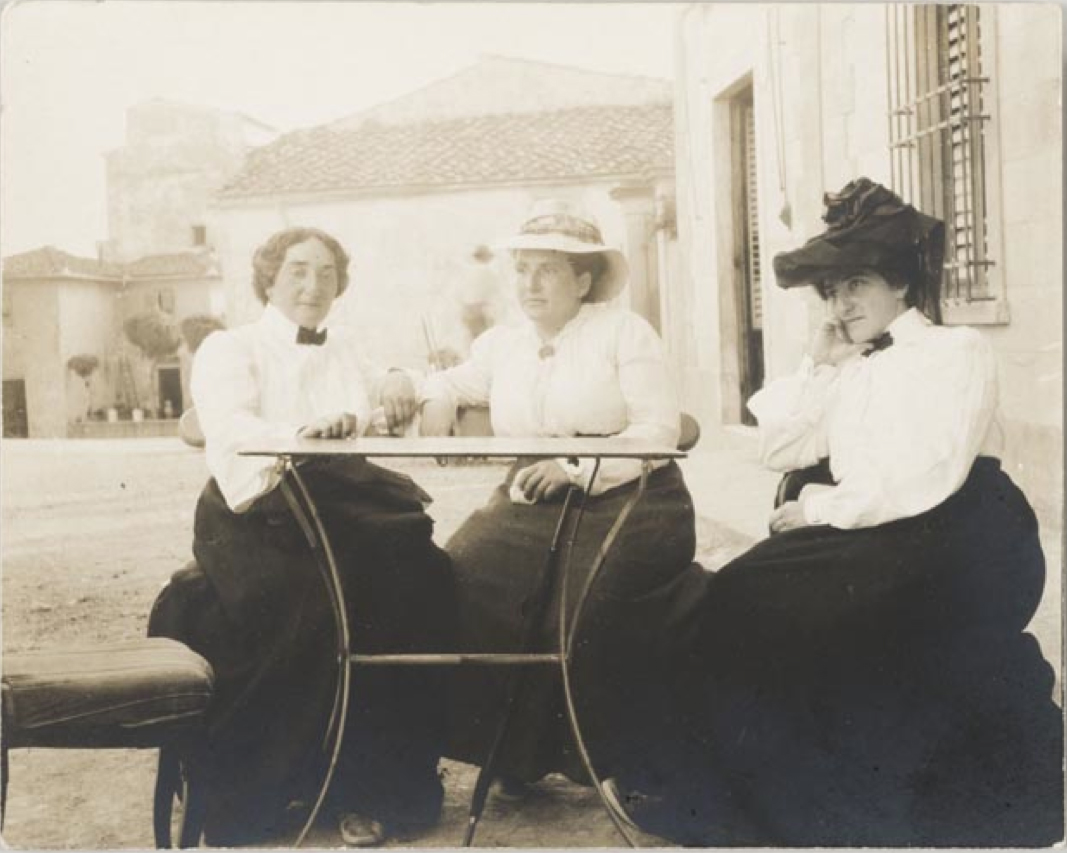
Celeste. #470, it has never fallen off the list. From the Latin for heavenly. A famous bearer is French dancer and actress Madame Celeste (1815-82). The name has maintained its popularity for years and seems to be in no danger.
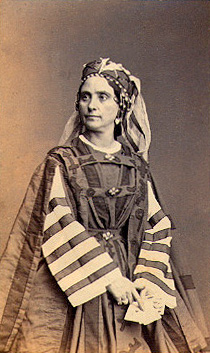
Celestine. Not ranked, it fell off the list after 1960, but reappeared in 1962-63. A famous bearer is Celestine Galli-Marie (1840-1905), a French mezzo-soprano who created the role of Carmen.

Catharine. Not ranked, it was on the list until 1959, from 1961-64, and 1966. The etymology is debated, but it came from Greek. One famous bearer, out of many, is Catharine of Aragon (1485-1536), first wife of Henry VIII. As with many people of the era, her name was spelled about a dozen different ways, and this is only one of them. I have never seen this spelling of the name before, and I don't think there's any need for it to return. Goodness knows we've got enough spellings without it: Catherine, Cathryn, Katherine, Kathryn, etc.

Cora. #155, it has never fallen off the list. It was on the boys' list in 1880-81, 1884-86, 1888-91, 1894-95, 1900, and 1903. Interestingly, we can trace this name back to a specific year and creator. James Fenimore Cooper made the name up for his novel The Last of the Mohicans, published in 1826. I think the name has gotten a boost in recent years from Lady Cora, of Downton Abbey. I think it will stick around, however: it's simple but dignified.

Christina. #284, it has never fallen off the list. It was used as a boy's name in 1978, 1984-86, and in 1989. A famous bearer is Christina, Queen of Sweden (1626-89). I can't even begin to tell you how cool she was or I'll never finish this post, so just go look her up yourself. That said, I like the name and don't think it will fall off the list, but like almost all names that soared in popularity in the last half century, it can feel a bit dated.

Christine. #652, it has never fallen off the list, but may suffer the same fate as Christina, and fall in popularity for a generation, until it feels less dated. One famous bearer is the Italian-French poet Christine de Pizan (1365-1430). One of the most famous writers of her day, she was immensely popular, and is seen by many as a proto-feminist writer.

Dora. Not ranked, it fell off the list after 1992. It ranked as a boy's name in 1880, 1882-84, 1887-90, and 1898-99. It's typically a diminutive of Dorothy, Theodora, Isidora, etc., and it means gift in Greek. One famous bearer is Dora Carrington (1892-1938), a British painter. It's a cute name, but as long as the children's show Dora the Explorer is a cultural phenomenon, a little girl should probably not be given the name.
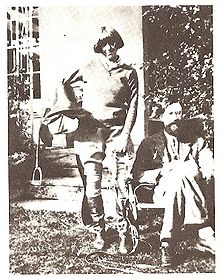
Dorothea. Not ranked, it fell off the list after 1970. From the Greek meaning gift of God. Women named Dorothea seem to have a propensity to help the unfortunate. One famous bearer is the American photographer Dorothea Lange (1895-1965), best known for her 1936 photograph, Migrant Mother. Another namesake is mental health advocate Dorothea Dix (1802-87). I think this is a really great name, with a wonderful meaning and excellent namesakes. It may very well make a comeback one day.


Deborah. #797, it has never fallen off the list. It was in the top 10 from 1950-62, rising to #2 in 1955. It ranked as a boy's name 1951-60, and in 1964. It means bee in Hebrew. The most famous bearer of the name is the Hebrew prophetess and judge from the Book of Judges, written sometime between the 12th and 7th centuries BC. It's a nice name, but because it was so popular a few decades ago, it feels really dated. It will likely fall in popularity for a time, and may very well drop off the list, but will certainly regain popularity eventually.

Delia. Not ranked, it fell off the list in 1994, 1996, 2001-02, 2006, and since 2008. It means of Delos in Greek, and was an epithet of the goddess Artemis. I think it's a really cute name: sassy and cheerful, and expect it will be back on the list soon.
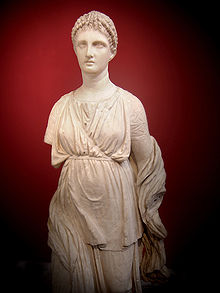
Dorcas. Not ranked, fell off the list after 1946, and reappeared in 1948 and 1951. It means gazelle in Greek, and is a translation of the Aramaic name Tabitha. The most famous bearer of the name lived during the 1st century and is mentioned in the Book of Acts. An early Christian, when she died, she was deeply mourned by the widows of Joppa, who showed Peter the robes she had made for them. Peter raised her from the dead. Today, a charity called The Dorcas Society provides clothing for people in need. It's a nice sentiment, but this name is dead and will never come back. A child named Dorcas today would be tormented pretty much all her life. If you think this is good name for your daughter, maybe you shouldn't reproduce.
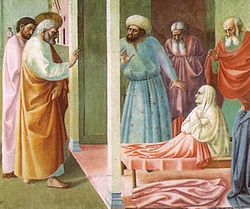
Blanche. Not ranked, it fell off the list after 1964. It made the boys' list in 1887, 1889, 1891, 1898-99, 1902, 1906, and 1908. It was a medieval French nickname that meant white. A famous fictional bearer is Blanche DuBois, from the Tennessee Williams drama, A Streetcar Named Desire (published 1947). I think it's a pretty name that may come back in a few years.

Bertha. Not ranked, fell off the list after 1985. It ranked as a boy's name in 1881-98, 1900-07, and 1910. It was in the top 10 until 1885. It's a Germanic name that means bright one. The Normans brought it over to England, but it died out after the middle ages, only to be revived in the 19th century. A famous bearer is Bertha Krupp (1886-1957), the head of the Krupp industrial dynasty. The famous German WWI howitzer, Big Bertha, is named for her. This name is dead in the water. Apart from it not being a terribly pretty name, the fact that people still know the Big Bertha gun a century after the Great War means any little girl with the misfortune to be named Bertha will be called Big Bertha, no matter what her size.

Beatrice. #690, it was off the list in 1997, 1999, and 2002-05. It ranked as a boy's name 1899-1900, 1902, 1905-06, and 1908-10. It is the Italian version of Beatrix, which comes from the Late Roman name Viatrix, which means voyager. A famous bearer, and the woman who helped the name spread, is Beatrice Portinari (1265-90), made famous as Dante's guide in Il Paradiso. They only met twice, the first time as children, but Dante apparently always loved her. I predict Beatrice will continue to gain popularity. Full disclosure, if I ever have a little girl, her name will be Dorothy Beatrice. Dorothy for my great aunt Dot, and Beatrice for my maternal grandmother.

Barbara. #900, it has never fallen off the list. It was used as a boy's name from 1929-60, and 1962-63, when it was in or near the top 10 for girls. While it never hit the #1 spot, it was ranked #2 from 1937-44, with about 3% of all girls born those years named Barbara. It comes from the Greek word for stranger. It fell out of favor after the Reformation, but was revived in the 19th century. One famous bearer, out of many, is actress Barbara Stanwyck (1907-90). I like the name, but it feels dated, and I expect it to drop off the list in the next few years. That said, I think it will be back on the list eventually, probably sooner rather than later.

Cecilia. #216, it has never fallen off the list. It comes from the Latin word for blind. The Normans brought it to England. A famous bearer is St Cecilia (2nd century). She is the patron saint of music and musicians because, according to hagiography, while musicians played at her wedding she "sang in her heart to the Lord." I think Cecilia is a lovely name, and don't expect its popularity (or that of its many variants) to wane anytime soon.

Cicily. Not ranked, nor has it ever been. Other variants Cecily and Cicely are more common. The only famous bearer I could find is Cicily Isabel Fairfield (1892-1983), better known at the influential British author Dame Rebecca West, a name she borrowed from one of Ibsen's rebellious heroines. She was an exceptional woman, but my favorite anecdote about her is as follows: she poked fun at HG Wells in a review in 1912, calling him an old maid. The review got his attention, and he invited the author over for lunch. They became lovers the next year, and their affair lasted for ten years. They had a son in 1914, and remained close friends until Wells died in 1946. I don't anticipate Cicily catching on as a name.

Caroline. #79, it has never been off the list. It's as popular now as it was in 1884. It ranked as a boy's name in 1891. A feminine form of Charles, it means man, essentially. A famous bearer is Caroline Herschel (1750-1848), a German-British astronomer and the first paid female scientist. I love the name Caroline, but a little girl named such must be prepared to have "Sweet Caroline" sung to her by every single person she meets.

Clara. #136, it has never fallen off the list, and was in the top 10 for several years in the 1880s and '90s. It ranked as a boy's name in 1880-81, 1883-89, 1891-96, and 1899-1910. Clara means clear and bright in Latin. A famous bearer is German composer Clara Schumann (1819-96). I expect Clara will continue to rise in popularity. It's very classic: feminine, strong, and less dated than Claire.

Claudia. #595, it has never fallen off the list. From the Latin word for crippled. A famous bearer is Claudia Octavia (39-62), wife of the Emperor Nero. As Roman names go, it isn't one of my favorites, though I don't dislike it. I predict its popularity will decline in the coming years.

Claudine. Not ranked, it was on the list from 1880-82, 1893, 1896, 1898-99, 1901-52, 1954, 1966-75. A famous bearer is Claudine Francoise Mignot (1624-1711), a French adventuress who made herself a fortune by being pretty and smart, and marrying rich older men. I don't think the name will make a comeback anytime in the near future, but you never really know.

Clementina. Not ranked, made the list in 1908. Comes from the Latin for merciful. A famous bearer is Maria Clementina Sobieski (1702-35), a Polish noblewoman. I don't think this name will ever be revived.

Constance. Not ranked, was on the list until 1999. It means exactly what it says on the tin, and I think it's a lovely name. A famous bearer is actress Constance Bennett (1904-65). I wouldn't be surprised if Constance makes a comeback soon. Parents often opt for virtue names for little girls, and Constance will stand out in a crowd of Hopes, Faiths, Graces, and Joys.

Constantia. Never ranked, it's a Late Roman name. It was the pen name of Judith Sargent Murray (1751-1820), an American writer. She believed in the equality of the sexes and carried on lively correspondence with many of America's founding fathers. I think it's a pretty name, but don't expect it to gain any popularity.

Cornelia. Not ranked, fell off the list after 1965. From the Latin word for horn, it has been popular since the 18th century. A famous bearer of the name is Cornelia Africana (190-100 BC), considered the ideal Roman woman. The daughter of a war hero, she married an older man. They truly loved each other and had twelve children (highly unusual at the time), three of whom survived to adulthood. After her husband died she chose not to remarry, and even turned down a king's marriage proposal. She educated her children, and studied Latin and Greek literature for her own benefit. Her two surviving sons, Gaius and Tiberius Gracchus became reform-minded politicians, despite their privileged background. She is one of four Roman women whose writings survive. I love the name Cornelia and wouldn't be surprised if it reappeared on the list within the next generation.

Callista. Never ranked, but variant Calista made the list in 1880-81, and from 1998-2004. It comes from the Greek for most beautiful. A famous bearer is American actress Calista Flockhart (born 1964). I doubt the name will ever gain much ground, but it's not a bad name, and it shares a root with my own name, Callie!

Claribel. Not ranked, it was on the list from 1881-85, 1889, 1891, 1893-94, 1896, 1898-99, 1901-04, 1906-09, 1912-14, and 1916-17. A famous bearer of the name is socialite and art collector Claribel Cone (1864-1929). I think the name is cute, but doubt it will catch on. In the picture, Claribel is on the left, her sister Etta is on the right, and Gertrude Stein is in the middle.

Celeste. #470, it has never fallen off the list. From the Latin for heavenly. A famous bearer is French dancer and actress Madame Celeste (1815-82). The name has maintained its popularity for years and seems to be in no danger.

Celestine. Not ranked, it fell off the list after 1960, but reappeared in 1962-63. A famous bearer is Celestine Galli-Marie (1840-1905), a French mezzo-soprano who created the role of Carmen.

Catharine. Not ranked, it was on the list until 1959, from 1961-64, and 1966. The etymology is debated, but it came from Greek. One famous bearer, out of many, is Catharine of Aragon (1485-1536), first wife of Henry VIII. As with many people of the era, her name was spelled about a dozen different ways, and this is only one of them. I have never seen this spelling of the name before, and I don't think there's any need for it to return. Goodness knows we've got enough spellings without it: Catherine, Cathryn, Katherine, Kathryn, etc.

Cora. #155, it has never fallen off the list. It was on the boys' list in 1880-81, 1884-86, 1888-91, 1894-95, 1900, and 1903. Interestingly, we can trace this name back to a specific year and creator. James Fenimore Cooper made the name up for his novel The Last of the Mohicans, published in 1826. I think the name has gotten a boost in recent years from Lady Cora, of Downton Abbey. I think it will stick around, however: it's simple but dignified.

Christina. #284, it has never fallen off the list. It was used as a boy's name in 1978, 1984-86, and in 1989. A famous bearer is Christina, Queen of Sweden (1626-89). I can't even begin to tell you how cool she was or I'll never finish this post, so just go look her up yourself. That said, I like the name and don't think it will fall off the list, but like almost all names that soared in popularity in the last half century, it can feel a bit dated.

Christine. #652, it has never fallen off the list, but may suffer the same fate as Christina, and fall in popularity for a generation, until it feels less dated. One famous bearer is the Italian-French poet Christine de Pizan (1365-1430). One of the most famous writers of her day, she was immensely popular, and is seen by many as a proto-feminist writer.

Dora. Not ranked, it fell off the list after 1992. It ranked as a boy's name in 1880, 1882-84, 1887-90, and 1898-99. It's typically a diminutive of Dorothy, Theodora, Isidora, etc., and it means gift in Greek. One famous bearer is Dora Carrington (1892-1938), a British painter. It's a cute name, but as long as the children's show Dora the Explorer is a cultural phenomenon, a little girl should probably not be given the name.

Dorothea. Not ranked, it fell off the list after 1970. From the Greek meaning gift of God. Women named Dorothea seem to have a propensity to help the unfortunate. One famous bearer is the American photographer Dorothea Lange (1895-1965), best known for her 1936 photograph, Migrant Mother. Another namesake is mental health advocate Dorothea Dix (1802-87). I think this is a really great name, with a wonderful meaning and excellent namesakes. It may very well make a comeback one day.


Deborah. #797, it has never fallen off the list. It was in the top 10 from 1950-62, rising to #2 in 1955. It ranked as a boy's name 1951-60, and in 1964. It means bee in Hebrew. The most famous bearer of the name is the Hebrew prophetess and judge from the Book of Judges, written sometime between the 12th and 7th centuries BC. It's a nice name, but because it was so popular a few decades ago, it feels really dated. It will likely fall in popularity for a time, and may very well drop off the list, but will certainly regain popularity eventually.

Delia. Not ranked, it fell off the list in 1994, 1996, 2001-02, 2006, and since 2008. It means of Delos in Greek, and was an epithet of the goddess Artemis. I think it's a really cute name: sassy and cheerful, and expect it will be back on the list soon.

Dorcas. Not ranked, fell off the list after 1946, and reappeared in 1948 and 1951. It means gazelle in Greek, and is a translation of the Aramaic name Tabitha. The most famous bearer of the name lived during the 1st century and is mentioned in the Book of Acts. An early Christian, when she died, she was deeply mourned by the widows of Joppa, who showed Peter the robes she had made for them. Peter raised her from the dead. Today, a charity called The Dorcas Society provides clothing for people in need. It's a nice sentiment, but this name is dead and will never come back. A child named Dorcas today would be tormented pretty much all her life. If you think this is good name for your daughter, maybe you shouldn't reproduce.

Subscribe to:
Comments (Atom)